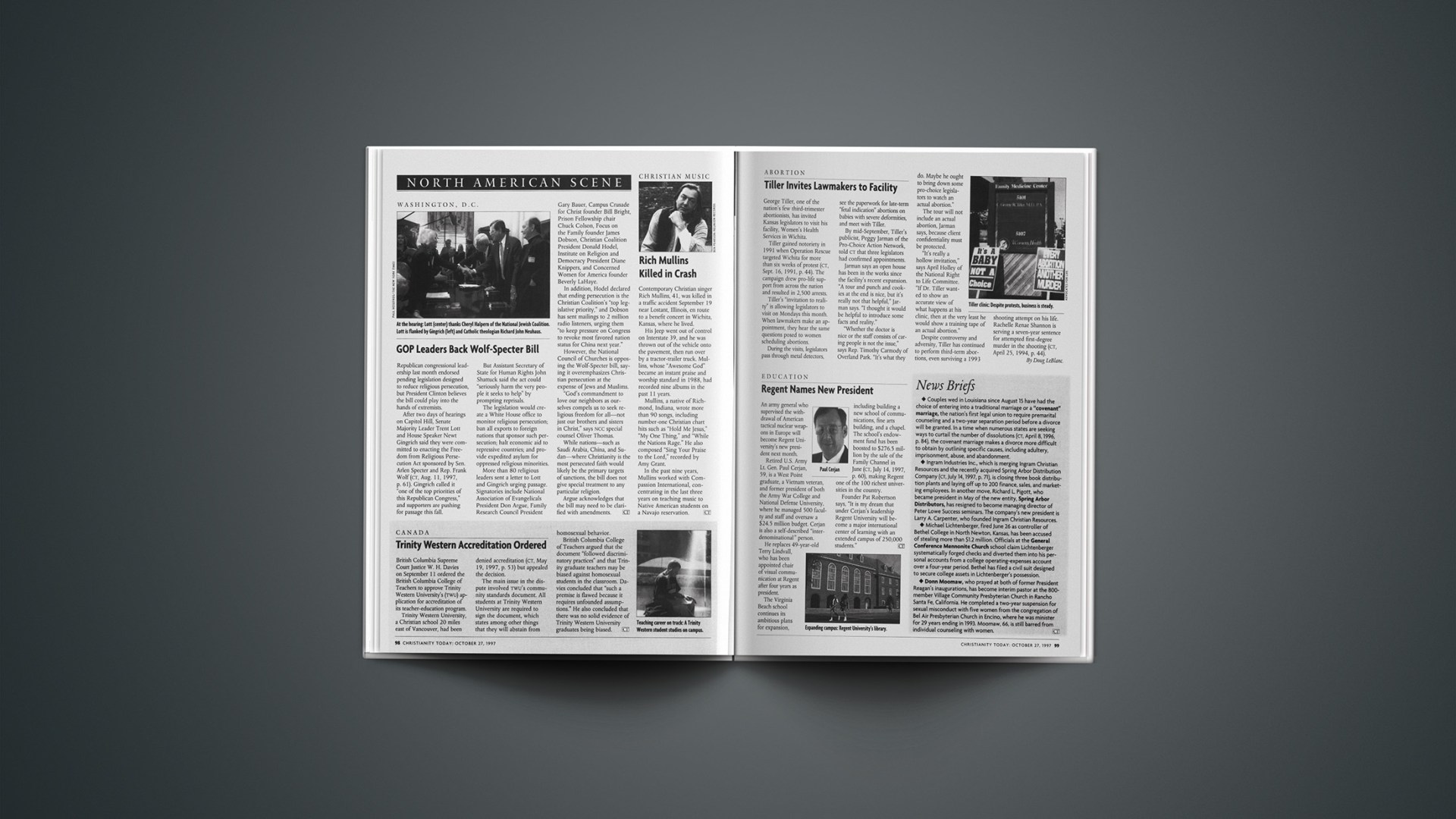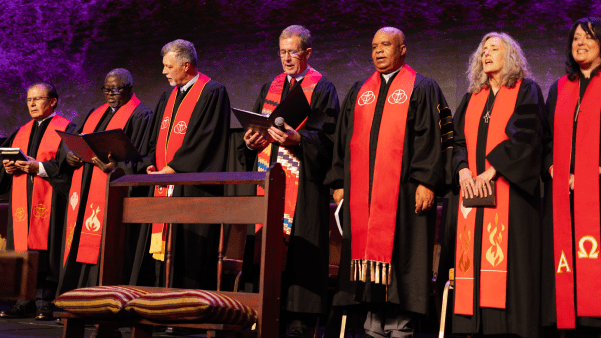Republican congressional leadership last month endorsed pending legislation designed to reduce religious persecution, but President Clinton believes the bill could play into the hands of extremists.
After two days of hearings on Capitol Hill, Senate Majority Leader Trent Lott and House Speaker Newt Gingrich said they were committed to enacting the Freedom from Religious Persecution Act sponsored by Sen. Arlen Specter and Rep. Frank Wolf (CT, Aug. 11, 1997, p. 61). Gingrich called it “one of the top priorities of this Republican Congress,” and supporters are pushing for passage this fall.
But Assistant Secretary of State for Human Rights John Shattuck said the act could “seriously harm the very people it seeks to help” by prompting reprisals.
The legislation would create a White House office to monitor religious persecution; ban all exports to foreign nations that sponsor such persecution; halt economic aid to repressive countries; and provide expedited asylum for oppressed religious minorities.
More than 80 religious leaders sent a letter to Lott and Gingrich urging passage. Signatories include National Association of Evangelicals President Don Argue, Family Research Council President Gary Bauer, Campus Crusade for Christ founder Bill Bright, Prison Fellowship chair Chuck Colson, Focus on the Family founder James Dobson, Christian Coalition President Donald Hodel, Institute on Religion and Democracy President Diane Knippers, and Concerned Women for America founder Beverly LaHaye.
In addition, Hodel declared that ending persecution is the Christian Coalition’s “top legislative priority,” and Dobson has sent mailings to 2 million radio listeners, urging them “to keep pressure on Congress to revoke most favored nation status for China next year.”
However, the National Council of Churches is opposing the Wolf-Specter bill, saying it overemphasizes Christian persecution at the expense of Jews and Muslims.
“God’s commandment to love our neighbors as ourselves compels us to seek religious freedom for all—not just our brothers and sisters in Christ,” says NCC special counsel Oliver Thomas.
While nations—such as Saudi Arabia, China, and Sudan—where Christianity is the most persecuted faith would likely be the primary targets of sanctions, the bill does not give special treatment to any particular religion.
Argue acknowledges that the bill may need to be clarified with amendments.
Copyright © 1997 Christianity Today. Click for reprint information.










